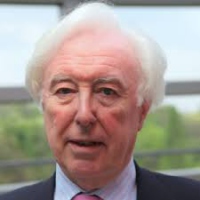John O’Sullivan
JOHN O’SULLIVAN (Liverpool, 1942) is editor-at-large of National Review in New York where he served as Editor-in-Chief for ten years. He was a Special Advisor to Prime Minister Margaret Thatcher in Downing Street and later assisted her in the writing of her two volumes of memoirs. He has held a wide variety of senior editorial positions in the media on both sides of the Atlantic. He is the founder and co-chairman of the Atlantic Initiative, an international bipartisan organisation dedicated to reinvigorating and expanding the Atlantic community of democracies, launched at the Congress of Prague in May 1996 by President Vaclav Havel and Lady Thatcher. His book, The President, the Pope, and the Prime Minister (on Pope John Paul II, President Reagan and Prime Minister Thatcher), was published in Hungarian, too, in 2010. Until 2011, he was the Executive Editor of Radio Free Europe and Radio Liberty in Prague. Currently he is the President of the Danube Institute, Budapest.

